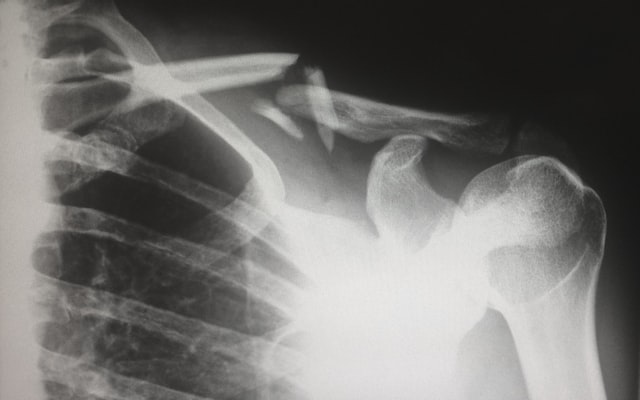
A dislocated shoulder is an injury that occurs when your upper arm bone pops out of the cup-shaped socket in your shoulder blade. Because the shoulder is the body’s most mobile joint, it is prone to dislocation.
If you think you have a dislocated shoulder, consult a doctor right away. Within a few weeks, the majority of people regain complete shoulder function.
However, after a dislocated shoulder, your joint may become unstable and prone to dislocations in the future.
In this article, Dr. Ratnav Ratan who is one of the best orthopedists in Gurgaon will share everything you should know about shoulder dislocation treatment.
Causes
The most commonly displaced joints in the body are the shoulder joint. Your shoulder can dislocate forward, backward, or downward, totally or partially, because it travels in numerous directions, yet most dislocations occur through the front of the shoulder.
Furthermore, the connective tissue that connects your shoulder’s bones can be strained or ripped, exacerbating the dislocation.- Says Dr. Ratnav Ratan who is also known for rotator cuff tears treatment & other orthopedic & pediatric orthopedic issues in Gurgaon.
The bones must be yanked out of place by a powerful force, such as a direct hit to the shoulder. The ball of your upper arm bone can burst out of its socket if you rotate your shoulder joint too much.
It’s also possible to have a partial dislocation, in which your upper arm bone is partially in and partially out of your shoulder socket.
A dislocated shoulder can be caused by a variety of factors, including:
- Sports-related injuries. Shoulder dislocation is a common injury in contact sports like football and hockey, as well as sports like downhill skiing, gymnastics, and volleyball.
- Trauma that has nothing to do with sports. A severe impact to the shoulder during a car collision is a common cause of shoulder dislocation.
- A fall, such as from a ladder or tripping on a loose rug, might dislocate your shoulder.
When should you see a doctor?
If your shoulder seems to be dislocated, seek medical attention straight soon.
While you’re waiting for medical help, do the following:
Don’t make any changes to the joint. In the current position, splint or sling the shoulder joint. Do not attempt to manipulate or force the shoulder back into place. This can harm the shoulder joint, as well as the muscles, ligaments, nerves, and blood vessels that surround it.
The damaged joint should be iced. By limiting internal bleeding and the buildup of fluids in and around your shoulder joint, using ice to your shoulder can help reduce discomfort and swelling.
Complications
Tearing the muscles, ligaments, and tendons that strengthen your shoulder joint are possible complications of a dislocated shoulder.
Damage to the nerves or blood vessels in or around the shoulder joint. Shoulder instability, which makes you more prone to re-injury, especially if you had a severe dislocation or several dislocations.
If ligaments or tendons in your shoulder are stretched or torn, or nerves or blood vessels in the area of your shoulder joint are damaged, you may need surgery to restore these tissues.
Prevention
To avoid a dislocated shoulder, take precautions to avoid falling. When participating in contact sports, wear protective equipment.
Exercise on a regular basis to keep your joints and muscles strong and flexible.
You may be more prone to subsequent shoulder dislocations if you’ve dislocated your shoulder joint.
Follow the precise strength and stability workouts that you and your doctor have advised for your injury to avoid a recurrence.
Treatment

Photo Credit: Unsplash
Treatment for a dislocated shoulder may include:
Closed reduction
To assist your shoulder bones return to their correct locations, your doctor may use some gentle manipulations. Before manipulating your shoulder bones, you may need a muscle relaxant, sedative, or, in rare cases, general anesthesia, depending on the severity of your pain and swelling. Severe pain should subside nearly quickly once your shoulder bones have been replaced.
Surgery
If you have a weak shoulder joint or ligaments and recurrent shoulder dislocations despite proper strengthening and rehabilitation, surgery may be necessary. If your nerves or blood arteries are affected, you may need surgery in rare situations.
Immobilization
For a few days to three weeks, your doctor may use a customized splint or sling to keep your shoulder from shifting. The length of time you wear the splint or sling is determined by the nature of your shoulder dislocation and how quickly you apply the splint following the dislocation.
Medication
To keep you comfortable while your shoulder heals, your doctor may prescribe a pain reliever or a muscle relaxant.
Rehabilitation
You’ll begin a gradual rehabilitation program to restore range of motion, strength, and stability to your shoulder joint when your shoulder splint or sling is removed.
Your shoulder joint will usually improve within a few weeks if you have a very simple shoulder dislocation without substantial nerve or tissue injury, but you’ll be at elevated risk for future dislocations.
If you resume activities too soon after a shoulder dislocation, you risk injuring or dislocating your shoulder joint again.
About The Author:
Arunava Deb: Masters in Business Administration by Education, Health Blogger by passion & profession. An enthusiast working in the field of health blogging. Have written 700+ health-related articles on Hair transplant, IVF, Oral health, Cancer, Neurosurgery, Acupuncture, Plastic surgery & other general health issues. Have been working in close relation with Doctors and the health sector.

